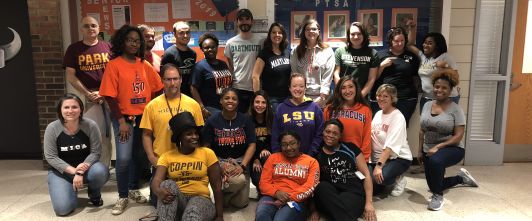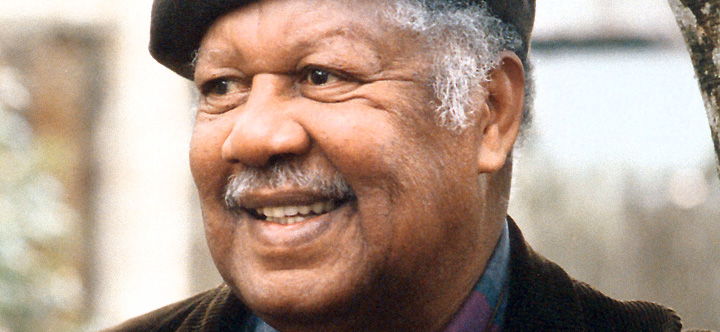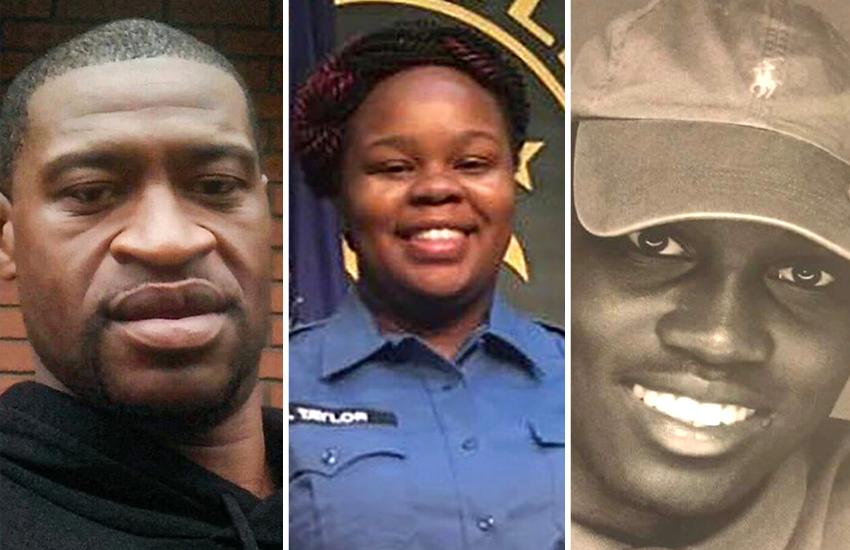I’ve spent my 15-year high school teaching career with a single-word classroom rule: respect. I tell students that every conflict can be resolved if we always respect each other.
Even for Dylan, who in 2007 sat at the front of the class and abruptly ended a dispute by bursting out, “Suck a big one, Mr. Flavin!” He didn’t hold back at all.
The room went silent and still, and of course the other kids were eager for my reaction as all of their heads turned from Dylan to me. That kind of talk to a teacher was extremely uncommon at this nice, average-sized, rural school in Molalla, Oregon. I’m willing to bet, while they’ve all seen a few things in school, they hadn’t seen that.
I guess he was pretty upset.
Despite being bright and eager for success, Dylan, a junior at the time, didn’t view himself an academic. He was 2-3 inches taller than me, a wrestler with a ton of energy, and he had braces to punctuate his adolescent face.
That was my 3rd year (of 11) at Molalla. Dylan’s demonstration was so far over-the-top, I had a sort of instant and antithetical reaction. Having driven a city bus in Seattle for nine years, his outburst hardly felt like a threat. It was as if I were watching the situation from a camera in the corner of the room, or in a dream. After a brief pause, I said softly, “Seriously?”
The ensuing silence swallowed him up and forced a barely perceptible, reluctant smile, then immediately kept his dignity by digging his heels back into his argument, venting in a much more productive way. I listened, and then he apologized, knowing he had overreacted.
He was a good kid. We settled it then and there, and that was the last time he and I had that level of conflict.
My one-word rule allowed us to forge a positive relationship, as it tends to ameliorate nearly any conflict — so long as I stick to it.
In Baltimore, 11 years later, I didn’t stick to it.
I teach sophomores and juniors at Overlea, a high school situated right at the city line, and importantly, on the County side of that line. Students appear and disappear and sometimes reappear to and from their desks all year because Overlea is often a transitory stop for parents of Baltimore City Public School relocating to the County for what they hope will be a better, and safer, education; meanwhile, other families regularly move away from Overlea, also in search of America’s promise.
One day in my first year, I broke my one-word rule with Deon by committing the forbidden: I didn’t respect him.
It was early in the school year, and I was adjusting to an enormous amount of change: an ongoing wrathful divorce, a move from the West Coast to the East Coast, a switch in perspective from teaching rural kids to urban, and I was adapting to a new relationship, new family, friends, and quite literally, every aspect of my existence was in a state of cultural change–for better or worse.
Out of frustration during a conflict, I reached out and grabbed Deon’s arm, which is a line that teachers are not to cross, ever, except for safety reasons.
It was my first year there, 12th overall. I was in the hallway conferencing with another student about her attendance, and when I came back in, Deon was standing in the middle of the classroom, looking at his phone and describing to the other students a meme about female genitalia. Out loud. Everyone laughed, as I entered just in time for the punchline — and the most descriptive part.
“What the hell are you doing, Deon? Are you serious? You can NOT talk like that!”
“Aww, c’mon Mr. Flavin,” he replied, minimizing, grinning. “They’ve heard a lot worse, believe me.”
He was right of course, with the Internet and social media being what they are, and yet the sight of his half-mouth grin made its way under my skin. I had that feeling you might get before you do or say something you know you shouldn’t.
As Deon wandered toward his desk, toward the front of the room, I grabbed him at the elbow as if to redirect him to the door. Brows deeply furrowed, in a small sort of shock or surprise, he fiercely twitched his arm away, which reminded me of his athleticism (all-league linebacker and wrestler). I let go and was about to tell him to leave, but Deon walked out on his own volition, cursing under his breath.
I was wrong. I broke my own simple rule, a golden rule; I disrespected a student.
Distraught, I turned to the rest of the class and gave them something to do on their own. Or maybe I didn’t say anything.
I went to the door to see if Deon was hanging around. I saw him down the hall about three classrooms down, venting to his football coach (also a teacher), who I welcomed as a go-between as I joined their spontaneous hallway meeting.
The coach supported me as well as he could, but Deon wasn’t having it; he was not going to apologize or even look at me. He repeated, speaking only to his coach, “He grabbed my arm! Mr. Flavin grabbed my arm!” With nothing resolved, the coach took him into his room, and I didn’t see him back for a week.
When he returned, I tried to talk to him, but he was shut down.
A few weeks later, while trying to motivate the class to keep working hard so they could graduate (a fairly regular conversation), I weaved in my “respect as the class rule” bit and openly acknowledged my mistake with Deon a month before. I said, and I’m paraphrasing, “Even though Deon was totally inappropriate, I was wrong for grabbing his arm, and I’m sorry for that.”
For a brief moment, he and I were tethered by eye contact, which, like Dylan 11 years before, evoked a barely noticeable grin. From that point forward, he and I were good. He had forgiven me.
I had openly respected Deon, affirming his dignity in front of his peers, and he accepted it. I had no clue at the time, but pride in Baltimore runs extraordinarily deep. I made the mistake; therefore, I was obligated to surrender. It made no difference that I was the teacher and he the student.
Another month later, overcoming limited interaction, it was finally behind us.
Respect is universal because it encompasses every golden rule, religious or otherwise. My students come from all walks of life, both in Molalla and Baltimore, and to begin the school year, I can’t possibly know where their shoes have been, so the one-word rule unites us. We all get it.
And yet, I’ve long suspected that there must be something deeper than abiding by a one-word rule.
Then, recently, I read the 1993 novel by Ernest J. Gaines, A Lesson Before Dying, and it consumed me.
The story is about a childlike, young black man (Jefferson) in the 1940s who finds himself in the wrong place at the wrong time. He is sentenced to death row for a murder he didn’t commit. Already poor, uneducated, and intellectually limited, apparently, his own defense attorney relentlessly equates him to a hog in order to argue his innocence, claiming that he didn’t have the intellectual capacity to plan the alleged triple murder. His godmother, Miss Emma, urges a young black teacher, Mr. Wiggins, to visit Jefferson at his jail cell to help him feel like a man before being executed.
Being Black in the 1940s, Jefferson’s execution was presumed; she wanted him to die with dignity.
“Respect is a commodity we exchange through actions and words, and dignity is the spiritual gain.”
As I read the story during that particular year, 2020, my mind was heavy with the murders of George Floyd, Ahmaud Arbery, and Breonna Taylor and so many others, as well as the subsequent protests and the Black Lives Matter movement. Gaines uses Jefferson to illustrate dignity as one of our most basic human needs.
I realized that dignity is at the root of my students’ needs — whether you’re white in rural Molalla, Oregon, or Black in urban Baltimore. Dignity is that “something deeper” my students need.
Respect is a commodity we exchange through actions and words, and dignity is the spiritual gain.
I was overwhelmed with this consciousness when I read this excerpt by the inmate Jefferson, writing in a notebook given to him by the teacher Mr. Wiggins as he begins to gain confidence:
“Im sory i cry mr wigin im sory i cry when you say you aint comin back tomoro i cry cause you been so good to me mr wigin and nobody aint never been that good to me an make me think im somebody.”
It’s not an apples-to-apples comparison, considering Jefferson lived in the 1940s, was on death row, and had zero formal education. Yet, at its center is a need for a humanity that transcends comparison: dignity is essential.
I felt this truth being at the root of my students’ needs—children!—and wept uncontrollably while holding the book open in my lap. I wept because the falsely accused Jefferson had been convinced he wasn’t worthy.
I wept because Jefferson is a symbol of the millions of falsely accused Black Americans during the 1940s, when Gaines’s story takes place. Of the last 400 American years, and with increasing visibility, today, in 2020.
Still.
Jefferson isn’t just a literary symbol for unknown numbers of unknown people, but Jefferson is my student. All at once, he became both an abstract dread about the fictional and nonfictional past and the concrete reality of real flesh and blood people in the present.
Today.
I could see Michael, Khalil, and Taniya asking questions, writing paragraphs, working hard. I see Myoni’s and Kayla’s empty desks — again. I see the smiles and the tears and hear the laughter and quarreling. I’ll always remember Kevin, not depressed today, but perpetually out of his seat. And Cameron, who could answer complex open-ended questions that no one else could while he texted a friend.
Suddenly, Jefferson is America’s Black population in the past, the 1940s, in my classroom, and inevitably, the future. Sure, I’ve always known this intellectually — I am an English teacher, after all — but there, in that moment, an enveloping gust of tangible realness overcame my whole self with a comprehension I hadn’t previously experienced.
I wept because Gaines led me — a white person — to the outside of the big transparent globe that surrounds the black experience. His novel offers a close-up view of the ceaseless and pervasive truth.
I cannot know from the outside of that globe. But, with my heart, my senses, and my words, I can glimpse, listen, and honor the dignity of the people living on the inside.
Today.
Written December 12, 2020







